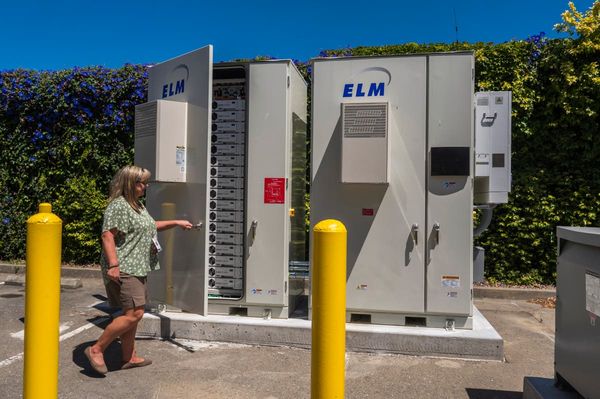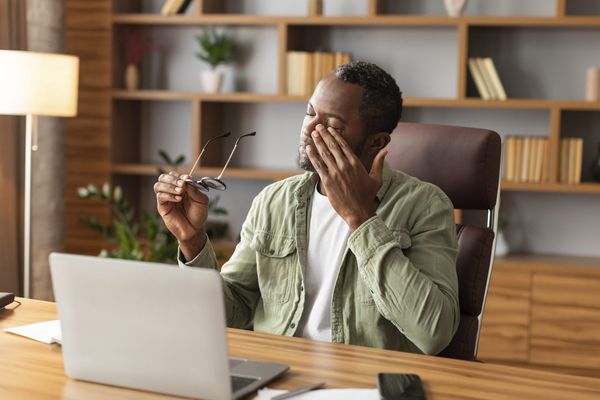Conservative MPs and council leaders have said Boris Johnson has “questions to answer” after the Tories lost flagship London boroughs to Labour and southern strongholds to the Lib Dems.
With many results still to come, including in Scotland, the Tories suffered serious losses but there was a mixed picture for Labour, which performed strongly in London and Cumbria but otherwise made only modest gains outside the capital.
The Liberal Democrats were celebrating a successful night, gaining 80 seats by 3pm. They took control of the new unitary authority in Somerset, previously a Tory stronghold, and overtook the Conservatives in Portsmouth and pushed them out of control in West Oxfordshire.
The Conservatives had lost 183 seats with two-thirds of the results for England declared by 3pm, while Labour was up 47.
Labour hailed its wins in Westminster, Wandsworth and Barnet, all longtime Conservative strongholds in the capital, as well as taking 30 of 46 seats on the new Cumberland council, and success in Southampton where it took control.
Starmer said in Barnet that the results were a “big turning point” for his party. “From the depths of 2019, that general election, winning in the north, Cumberland, Southampton. We’ve changed Labour and now we’re seeing the results of that.”
However, Labour failed to claw back much ground in many “red wall” areas outside the capital, measured against when these seats were last fought in 2018 during Theresa May’s premiership.
The elections expert Prof John Curtice told BBC Radio 4’s Today programme: “The trouble is, outside of London, Labour share of the vote was actually down slightly. In terms of seats won and lost, while it’s made net gains in London, it’s actually made a slight net loss outside of London. So outside of London it’s a rather different story. And of course Labour can’t win Westminster parliament by simply winning Westminster council.”
Conservative MPs mulling a move against Johnson will be scrutinising the results closely. David Simmonds, the Tory MP for Ruislip, Northwood and Pinner, said: “Clearly the prime minister has difficult questions to answer. People were broadly positive about the government’s policies but they’re not happy with what they’ve been hearing about Partygate.”
The Wimbledon MP Stephen Hammond, who saw the Lib Dems take council seats at the Conservatives’ expense in his local borough of Merton, said: “That ought to be a clarion bell ringing in Downing Street to make sure we are concentrating on the cost of living.” Asked about Johnson’s future, he told the BBC: “I think he has to prove his integrity to the country.”
The Lib Dem leader, Ed Davey, went to Wimbledon to give a victory speech, calling the results “an almighty shock wave that will bring this Conservative government tumbling down”. He described the result in Somerset, where the Lib Dems took 56 seats compared with 29 for the Tories, as a “political earthquake” especially among rural communities fed up with being taken for granted.
He pointed to his party’s success in overturning hefty Conservative majorities in byelections last year in Chesham and Amersham and then North Shropshire, saying: “It is the movement of millions of people who are saying loud and clear: ‘We have had enough.’ The tectonic plates of British politics are shifting beneath Boris Johnson’s feet. And now it’s time for Conservative MPs to plunge him into the abyss.”
The Green party also had a good night, with the number of council seats it holds in England more than doubling to 39. Some of these are well outside the party’s traditional strongholds, in areas including South Tyneside and Cumberland.
The Conservative party co-chair Oliver Dowden dismissed calls for Johnson to consider his position as a result of the party’s losses, claiming the results were typical for a midterm government.
“While there have been difficult results, they are consistent with what you’d expect with us from midterm,” he said. “Labour are certainly not on the path to power and I believe that Boris Johnson does have the leadership skills, in particular the energy and the dynamism, that we need during this difficult period of time.”
The prime minister, who was visiting a school in his Uxbridge constituency, conceded it had been a “tough night” but highlighted his party’s stronger performance in some areas.
“We had a tough night in some parts of the country but on the other hand in other parts of the country you are still seeing Conservatives going forward and making quite remarkable gains in places that haven’t voted Conservative for a long time, if ever,” he said.
Labour dismissed the idea it was not making progress, pointing out that its vote share was up in key battleground seats when measured against its catastrophic performance at the 2019 general election.
It said that on this basis it looked on course to win back up to 16 seats that voted leave in the EU referendum, including Carlisle, Great Grimsby and Workington.
Many grassroots Tories laid the blame at Johnson’s door for the loss of their seats. John Mallinson, the Conservative leader of Carlisle city council, told the BBC he had “lost some very good colleagues” in the Cumberland local election, and had found it “difficult to drag the debate back to local issues” while campaigning, because of Partygate and the cost of living crisis.
He said: “I think it is not just Partygate, there is the integrity issue. Basically I just don’t feel people any longer have the confidence that the prime minister can be relied upon to tell the truth.” Asked if Conservative MPs should remove Johnson, he said: “That would be my preference, yes.”
Campaigners from all parties said the cost of living came up frequently on the doorstep, and the results will increase the pressure on the chancellor, Rishi Sunak, to take fresh action to help families struggling to make ends meet.
The Bank of England forecast on Thursday that inflation could hit 10% by the end of the year and the economy could slip into reverse in 2023.







